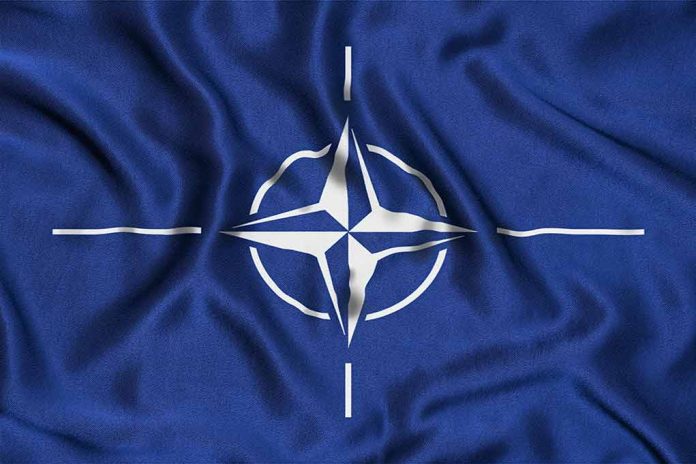
In a stern directive, NATO Secretary-General Mark Rutte warns Russia against aggression, underscoring NATO’s commitment to a decisive military response.
Key Takeaways
- NATO’s Rutte warned Russia of a “devastating” response to attacks on Poland or any NATO member.
- Rutte made these statements alongside Poland’s Prime Minister Donald Tusk in Warsaw.
- Concerns rise among eastern NATO states about U.S.-Russia talks potentially favoring Russia.
- European countries are scaling up defense spending in response to perceived Russian threats.
- Trump suggested the U.S. might reassess defense commitments if NATO members fall short in spending.
NATO’s Bold Directive
During a pivotal meeting in Warsaw, NATO Secretary-General Mark Rutte issued a direct ultimatum to Russian President Vladimir Putin, emphasizing that any military action against Poland or NATO allies would result in a severe retort. This announcement, made in conjunction with Polish Prime Minister Donald Tusk, highlights the collective defensive spirit of NATO. These declarations come amid escalating distrust between NATO and Russia, especially with Eastern NATO members growing anxious about confidential U.S.-Russian talks.
Rutte underscores the strategic military resolve underpinning NATO’s defense policies. Highlighting Russian advances into a wartime economy, Rutte suggests that such actions bolster Russia’s military capabilities, posing profound implications for European security. This situation prompts European nations to amplify their defense strategies, addressing potential threats emerging from beyond their borders.
European Defense Measures Intensify
Across Europe, several nations are heeding NATO’s call for increased vigilance and operational readiness. Significantly, Sweden is enhancing its defense budget, marking a historical shift reminiscent of Cold War rearmament strategies. In a parallel development, Germany announced the approval of a €500 billion fund dedicated to strengthening its military and infrastructure assets. Elsewhere, Spain has committed to boosting defense expenditure to align better with NATO’s established standards.
“Let’s not forget that Russia is and is remaining the most significant and dark threat to our alliance. Let’s not forget that Russia is moving into a wartime economy, and that will have a huge impact on their capacity and capability to build their armed forces,” said Rutte.
This concerted effort among European allies answers growing concerns about potential vulnerabilities arising from European underinvestment in military sectors. The bolstered defense initiatives serve as a critical counterbalance, reinforcing NATO’s position as a formidable counterforce against possible Russian maneuvers in the region.
Transatlantic Concerns and Preparations
European leaders remain cautious of the U.S.’s stance under President Trump, who previously hinted at recalibrating America’s defense commitments if NATO partners didn’t meet expected spending thresholds. The EU, in its proactive approach, is urging civilians to prepare for unforeseen conflicts by maintaining stockpiles of essential supplies for at least 72 hours. Additionally, measures are underway to establish a strategic reserve of critical resources, aiming to sew the seams of resilience across the continent.
“If anyone were to miscalculate and think they can get away with an attack on Poland or on any other ally, they will be met with the full force of this fierce alliance. Our reaction will be devastating. This has to be very clear to Vladimir Vladimirovich Putin and anyone else who wants to attack us,” Rutte continued.
In the broader geopolitical sphere, these developments underscore the need for diligent monitoring and preparedness. With the potential for diplomatic negotiations to sway, the importance of maintaining a united front against external threats becomes even more crucial. This narrative within NATO and its allies epitomizes the steadfast commitment to ensuring the security of transatlantic nations in times of uncertainty.


